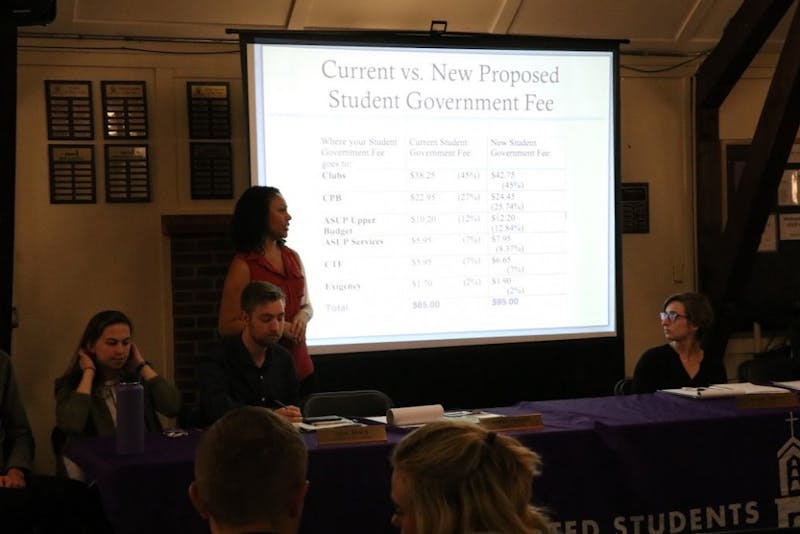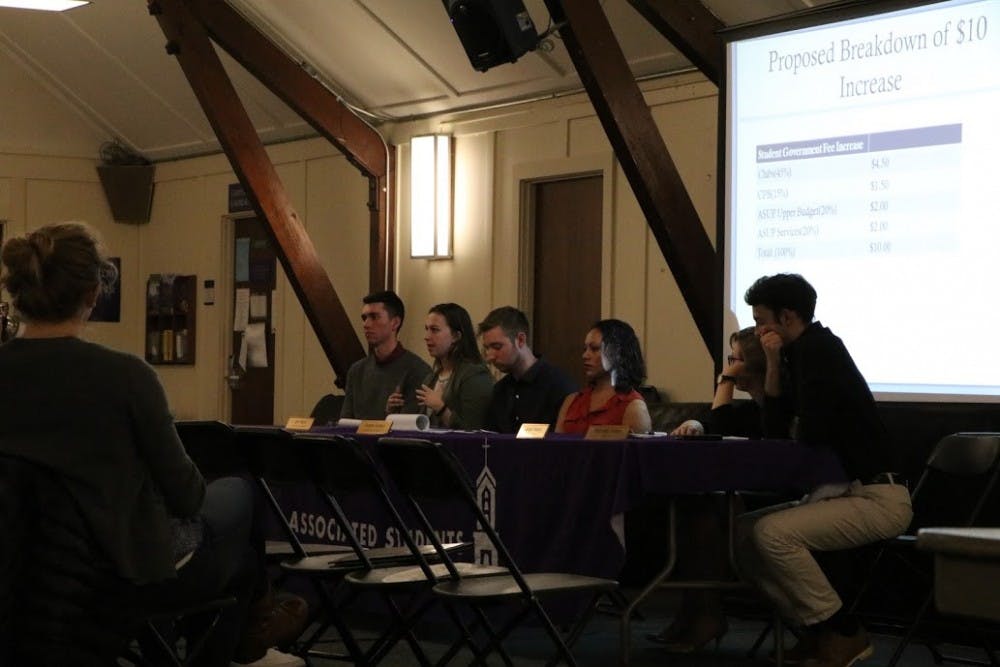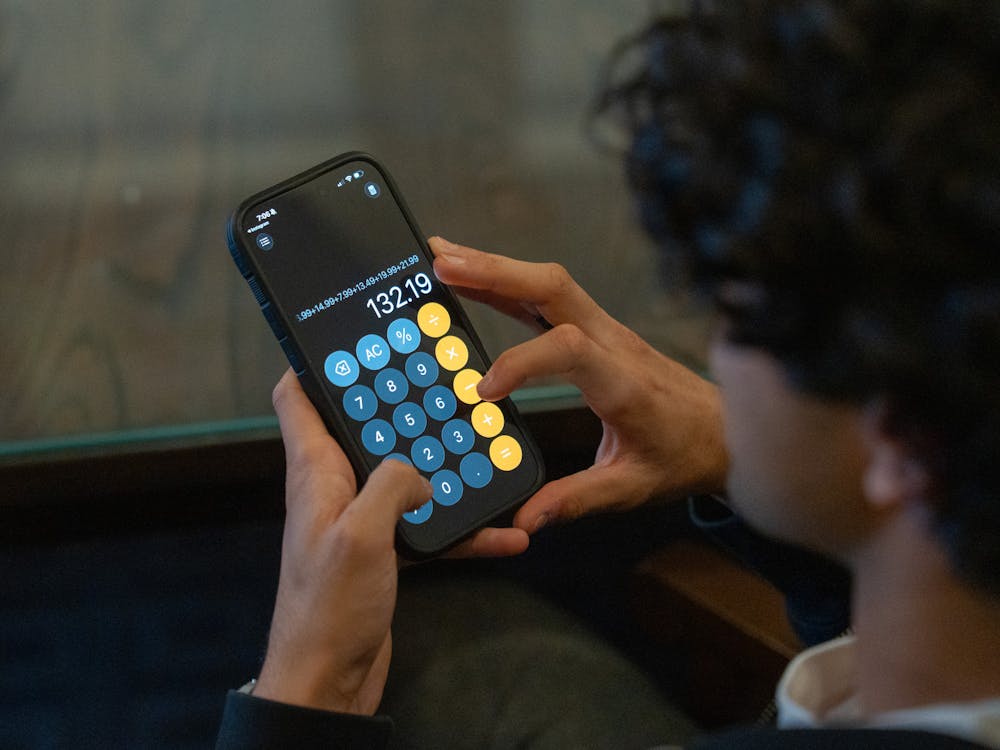About thirty people turned out for the ASUP press conference in St. Mary’s Lounge Thursday night regarding Resolution 16-01, which proposes to raise the Student Government Fee from $85 to $95 per semester.
If passed, the resolution would take effect Fall of 2017 and would allocate $4.50 of each $10 increase to clubs, $2 to the ASUP upper budget, $1.50 to CPB and $2 to ASUP services.
The resolution will be put to a student vote in a “special election” on Nov. 15 and 16 through Pilots UP online and requires a simple majority to pass, meaning voter turnout must be at least 10 percent of the student body and at least 50.1 percent of those votes must be a “yes.”
When asked whether they thought 10 percent voter turnout was acceptable to pass the resolution, Akers said he did not like it, but it is acceptable because that is the policy that is laid out in the bylaws and that is what the students have indirectly agreed to.
“Ten percent is not a good idea of what the entire student body wants,” Akers said. “Do I want to see that? No. I want to see 25, 30, 35 percent of the students.”

Paying senators
Among the changes under the resolution includes creating $1,000-per-year, or about $125-per-month stipends for the 16 ASUP senators, positions that have traditionally been unpaid. Money to pay the senators would come out of the ASUP upper budget.
According to the executive board, that figure is comparable with senators’ salaries at other West Coast Conference universities.
CPB Director Jacque Nelson said that a former ASUP executive board researched other schools’ student governments a few years ago and found that “every single student government position was paid for by the university in some way.”
“They had their own office spaces, materials, but at the very least they were given some sort of stipend to make sure that they are being held accountable,” Nelson said.
The board also mentioned that UP’s student government fee is low compared to other West Coast Conference universities’, with Gonzaga’s fee at $95, LMU’s at $100, Pacific’s at $120 and Pepperdine’s at $126.
Speaker of the Senate John Akers said senators are currently required to put in about six hours of work each week between attending the weekly ASUP Senate meeting, holding at least one hour of office hours per week plus one weekly “event or committee hour.”
“They can easily go up to ten hours a week during a tough week,” Rivera said.
“I knew senators last year who put in 18 hours a week,” Akers said.
When asked how the senators would be held accountable to their constituencies with paid positions, junior class senator Natalie Buchholz said that ASUP laid the groundwork for tightening up the responsibilities by downsizing the senate last year from 30 positions to 16 positions with the passing of the new constitution last spring.
“There were 30 senators last year but barely half of them did anything, or had continuous constituency reports. This year the executive board expects more from every single senator,” Buccholz said. “I think it is very difficult with only 16 positions to slip through the cracks.”
Currently the newly-created Speaker of the Senate position is in charge of overseeing senators and ensuring they attend office hours and produce constituency reports from their committee hours. According to the bylaws in the constitution senators can be recalled by their constituencies, Akers said. Additionally, they can be dismissed for exceeding two unexcused absences.
“There are definitely some guidelines that they will be held to and if they don’t meet those guidelines then their constituencies will look at that,” Akers said.
Money for new clubs
About $38 per semester, 45 percent of the student government fee, goes toward funding clubs on campus.
With the proposed increase, that number would jump to about $43 per semester.
Rivera said that ASUP recognizes close to 100 student clubs, with more clubs being approved each semester.
“We are not able to fully fund all of the clubs, so this gives us a little more breathing room to try to fund the students’ events,” Rivera said.
Addition of new ASUP service
ASUP plans to take the movie service currently provided by CPB and add it to their own services called ASUP Films. The film service would allow students and clubs to use projectors and have access to screening copyrighted movies at public events instead of having to go through media services to get these materials.
Nelson said the current system makes clubs budget for their own movie events when the clubs don’t have the money or resources to do so.
Opportunity grant system
The opportunity grant system seeks to eliminate inconsistent club spending with large events that are not followed-through on.
The current process for clubs to get event funding involves line-item budgeting that requires clubs to predict the amount of money they will need at the beginning of the semester.
However, Nelson said, clubs sometimes end up having unforeseen event expenses, or expenses they thought they’d have at the beginning of the semester that end up not coming to fruition.
The resolution proposes to fund major events that are certain to happen by having clubs bring a proposal for an event grant to ASUP Director of Finance Angela Hudson, who would then pitch the event to the Financial Management Board.
“Rather than budgeting for a large-scale event that you’re 70 percent sure you’re going to have, you can wait and process that same exact request as it gets closer to the date,” Nelson said.
---
What is the Student Government Fee?
The Student Government Fee is included in the tuition of all full-time undergraduate students each semester. Money collected from the fee goes toward funding student clubs, the Campus Program Board, student activities and general ASUP funding.








